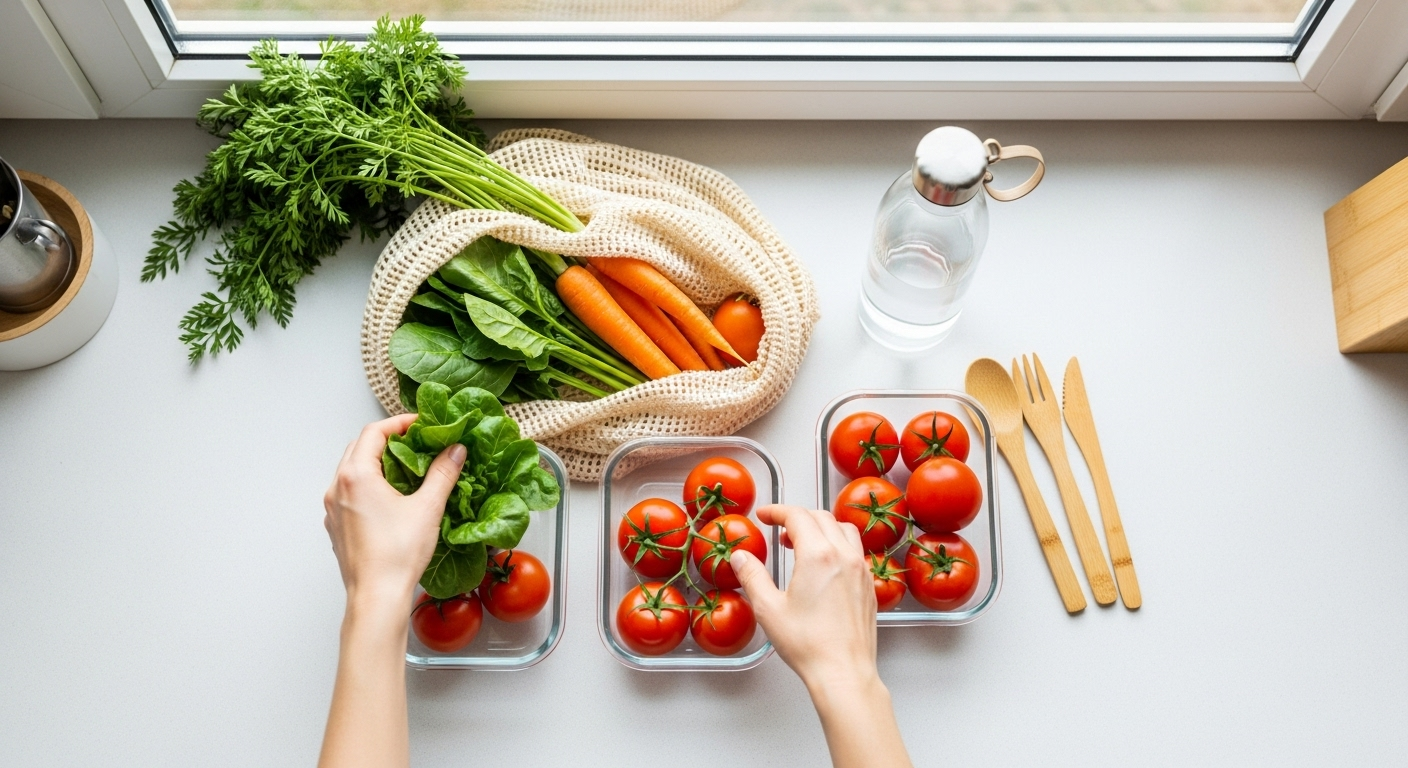
You’ve seen the picture, right? The zero-waste influencer with their single, tiny mason jar containing a year’s worth of trash. It’s an impressive photo. It’s also completely, utterly unrelatable for 99.9% of us who are just trying to remember to bring the reusable grocery bags into the store.
There’s this weird pressure in the world of eco-friendly living. A pressure to be perfect. To overhaul your entire life overnight, banish every scrap of plastic, and start composting your own toenail clippings. And that perfectionism is the single biggest reason most people give up. It feels too big, too expensive, too… much.
So, let’s just throw that idea in the recycling bin. This isn’t about being a perfect environmentalist. This is about being a better one. It’s about making small, deliberate, and genuinely sustainable changes that you can actually stick with. I’ve been on this journey for years, and let me tell you, the small hinges are the ones that swing the biggest doors.
Beyond the Home: Changing How You Consume
Being eco-friendly isn’t just about what you buy; it’s about what you don’t buy. It’s a mindset shift that can ripple through every part of your life.
6. Embrace the “Buy Nothing” Mentality (Sometimes). Before you click “Add to Cart,” ask yourself one simple question: “Can I borrow this from someone?” Especially for single-use items like a specific tool for a DIY project. Local “Buy Nothing” groups on social media are a goldmine for this. It’s a powerful way to build community and reduce hyper-consumerism.
7. The Library is Your Best Friend. Why buy a new book you’ll only read once? The library is a treasure trove of books, movies, and even online resources, all for free. It is the original, and still the best, model of a sharing economy.
8. The 30-Day Rule. See something you want but don’t desperately need? Wait 30 days. Put a reminder on your calendar. More often than not, by the time the 30 days are up, the urge will have completely passed. This simple habit curbs impulse buying like nothing else.
9. Vote with Your Dollar (and Your Actual Vote). This might be the most important tip. While individual actions are crucial, systemic change is what will move the needle. Support companies that are genuinely committed to sustainability. And vote for local and national candidates who take environmental policy seriously. The scale of the problem demands solutions beyond our individual kitchens, touching on everything from economic growth to public health.
This journey isn’t a race to perfection. It’s a slow, steady, and often messy process. It’s about choosing a cloth over a paper towel. It’s about using a bar of soap instead of a plastic bottle. It’s about celebrating the small wins and forgiving yourself for the times you forget the reusable bags. Every little choice is a vote for the kind of world you want to live in. And those votes add up.
Frequently Asked Questions (FAQs)
Isn’t living a sustainable lifestyle really expensive?
This is a huge myth. While some specialty “eco” products can be pricey upfront (like silicone food storage bags), many sustainable habits actually save you a ton of money. Using rags instead of paper towels, brewing your own coffee, buying less stuff, and reducing food waste will all lower your monthly bills. The most sustainable choice is often to not buy anything new at all.
What’s the deal with recycling? Is it even worth it?
It’s complicated. Recycling is important, but it’s also the last line of defense. The mantra should always be: Reduce, Reuse, then Recycle. Focus on bringing less disposable stuff into your home in the first place. When you do recycle, make sure you know your local rules (what numbers they accept, whether you need to separate materials) to avoid “wish-cycling” and contaminating the batch.
I live in a small apartment. I can’t compost!
You might be surprised! There are great countertop composting bins and even electric composters that work perfectly for small spaces and don’t smell. Many cities also have compost drop-off locations at farmers’ markets or community gardens. A quick search for “composting near me” might reveal options you didn’t know you had.
What’s one simple, high-impact change I can make today?
Switch your energy provider. In many states, you have the option to choose where your electricity comes from. A simple phone call or a few clicks online can switch you to a provider that generates power from 100% renewable sources like wind or solar. It’s a massive, passive way to reduce your carbon footprint without changing your daily life at all.











